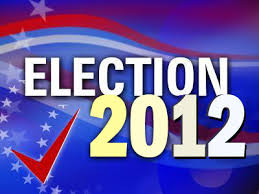No, I'm not referring to Candidate Obama, or Medicare under Paul Ryan's budget.
I'm referring to the phenomenon that occurs with the staff of labor organizations every time there is an election. If you are a union member, have you ever noticed that your union representation becomes as hard to find as a unicorn during election season? The local office is as empty as a church on Sunday morning - unless it is being used as a campaign office.

The reason for this is one of the worst kept secrets in the world of organized labor. Every election cycle, in direct conflict with FEC law, union staff are forced to "volunteer" for whoever the Democratic candidate happens to be. In presidential election cycles, this can start as early as September, and in mid-term or special elections, it can start in October.
I experienced this firsthand during my time with a certain purple entity during the Senate Bill 5/Issue 2 election. Instead of representing our members as we should have, we were required to work exclusively out of a campaign office. Everything else became secondary, unless you had an actual arbitration hearing. In full disclosure, the S.B. 5 recall was somewhat justified, as it directly affected almost a third of the members of our local who were state employees. However this is commonplace in presidential and statewide races where this is not the case. So, if you happen to have a contract that might be coming up for negotiation, it might be a little concerning if all of the sudden, everyone is off doing political work instead of representing members.
This is not limited to SEIU. This is standard procedure with virtually every major labor union, with the exception of the United Electrical Workers(UE) and the National Union of HealthCare Workers(NUHW), who prefer direct action to wasting its time with PACs.
I'm not saying the unions should not be involved in the political realm. It is necessary and important, as elected officials have direct influence on the livelihood of union members. What I am saying is that a union's involvement in politics should not come at the expense of member representation, which is almost always the case.
In Solidarity,
Joseph
I'm referring to the phenomenon that occurs with the staff of labor organizations every time there is an election. If you are a union member, have you ever noticed that your union representation becomes as hard to find as a unicorn during election season? The local office is as empty as a church on Sunday morning - unless it is being used as a campaign office.
The reason for this is one of the worst kept secrets in the world of organized labor. Every election cycle, in direct conflict with FEC law, union staff are forced to "volunteer" for whoever the Democratic candidate happens to be. In presidential election cycles, this can start as early as September, and in mid-term or special elections, it can start in October.
I experienced this firsthand during my time with a certain purple entity during the Senate Bill 5/Issue 2 election. Instead of representing our members as we should have, we were required to work exclusively out of a campaign office. Everything else became secondary, unless you had an actual arbitration hearing. In full disclosure, the S.B. 5 recall was somewhat justified, as it directly affected almost a third of the members of our local who were state employees. However this is commonplace in presidential and statewide races where this is not the case. So, if you happen to have a contract that might be coming up for negotiation, it might be a little concerning if all of the sudden, everyone is off doing political work instead of representing members.
This is not limited to SEIU. This is standard procedure with virtually every major labor union, with the exception of the United Electrical Workers(UE) and the National Union of HealthCare Workers(NUHW), who prefer direct action to wasting its time with PACs.
I'm not saying the unions should not be involved in the political realm. It is necessary and important, as elected officials have direct influence on the livelihood of union members. What I am saying is that a union's involvement in politics should not come at the expense of member representation, which is almost always the case.
In Solidarity,
Joseph
No comments:
Post a Comment